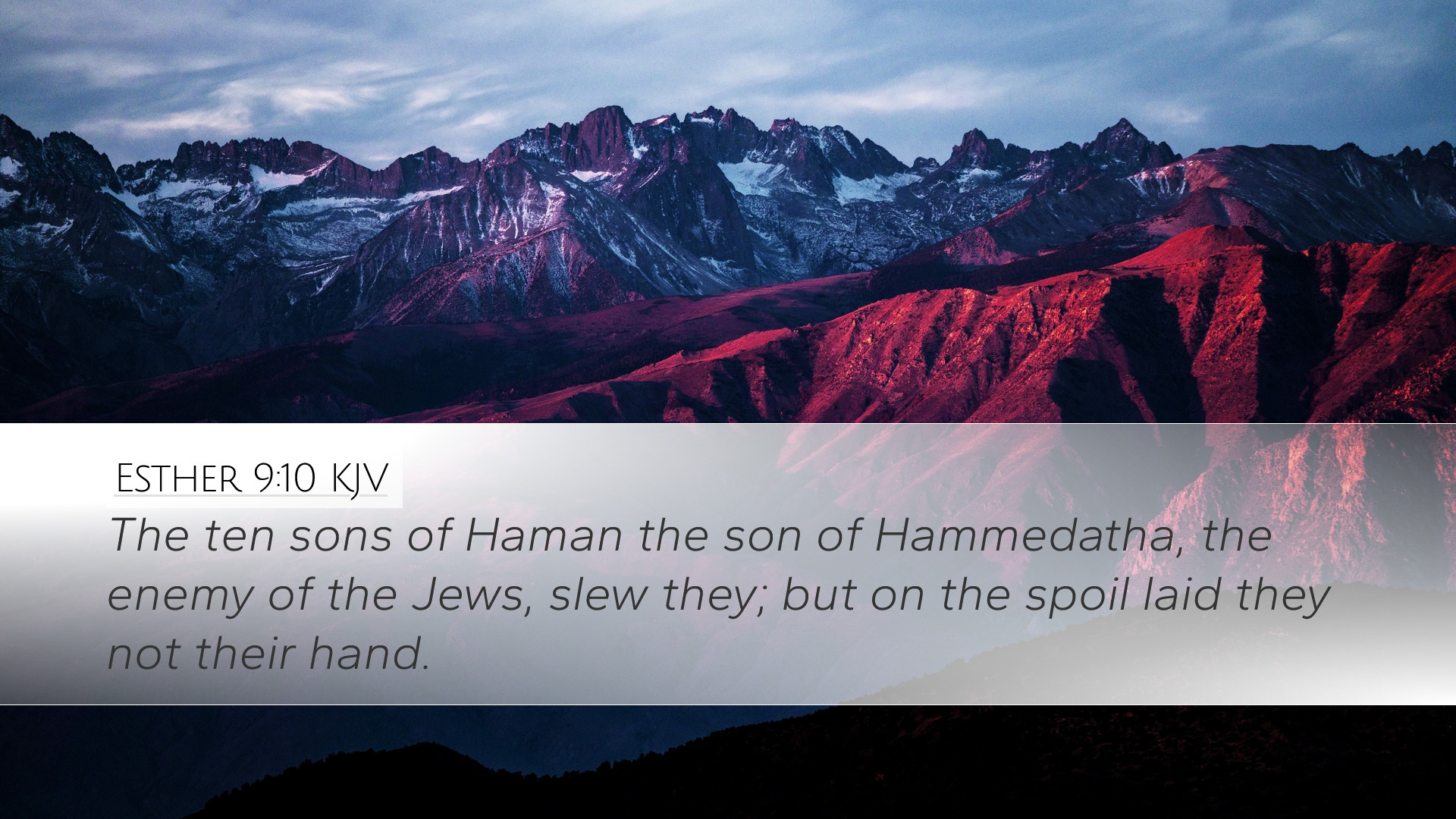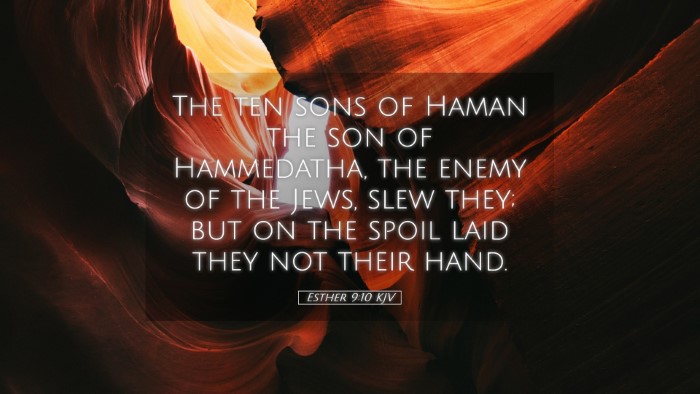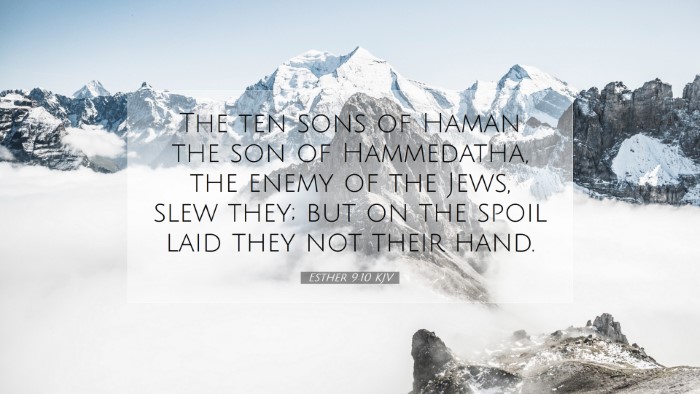Commentary on Esther 9:10
Bible Verse: Esther 9:10 - "The ten sons of Haman the son of Hammedatha, the enemy of the Jews, slew they; but on the spoil laid they not their hand."
Introduction
This passage from the Book of Esther marks a significant moment in the unfolding drama of the Jewish people's survival against their adversaries. The extermination of Haman's sons not only symbolizes victory but also highlights themes of justice and divine intervention, essential to understanding God's providence throughout the text.
Contextual Overview
In the broader narrative of Esther, we find the Jews facing annihilation due to Haman's plot. As the story progresses, Queen Esther, through a series of courageous acts, exposes Haman's intentions, leading to a reversal of fortunes. This verse operates within the climax of this narrative, showcasing the resolution of conflict and the execution of justice.
Verse Analysis
- Haman's Legacy: The sons of Haman represent not only familial ties but also the continuation of Haman's malice. Their death can be interpreted as a fulfillment of the Jewish desire for retribution against those who sought their extermination.
- Significance of Not Taking Spoil: The decision not to take spoil demonstrates a commitment to righteousness. By abstaining from material gain associated with their victory, the Jews highlight their motives rooted in justice rather than greed.
- Divine Preservation: The execution of Haman's sons symbolizes God’s protective hand upon His people. The survival of the Jews, juxtaposed with the demise of their enemies, serves as a powerful reminder of God’s sovereignty.
Theological Insights
- Justice vs. Revenge: While the annihilation of Haman's sons may appear vengeful, it is essential to distinguish between divine justice and human revenge. Biblical scholars like Matthew Henry emphasize that God's justice is executed to uphold righteousness, revealing a moral order rather than caprice.
- The Empowering of the Oppressed: Adam Clarke notes that the empowerment of the oppressed, as witnessed in this text, aligns with a broader biblical narrative where the marginalized are lifted, and their oppressors are brought low. This illustrates the theme of hope among the disenfranchised.
- The Role of Providence: Albert Barnes posits that such events serve to demonstrate God's providence, asserting that He orchestrates circumstances to fulfill His covenant promises. The Jews' triumph over Haman's lineage is a testament to divine orchestration throughout history.
Commentary Connections
Examining this verse within the commentaries reveals rich theological discussions that are instructive for modern readers. Each commentator brings forth unique insights, offering a multidimensional understanding of the text:
- Matthew Henry: In his commentary, Henry explores the moral implications of the Jews' actions, affirming that the destruction of evil is a necessary component of faithfulness to God’s will.
- Albert Barnes: Barnes emphasizes the historical significance of this moment, drawing parallels to the ongoing theme of God preserving His people amidst trials and tribulations.
- Adam Clarke: Clarke engages with the cultural context, suggesting that the actions taken here reflect a community's struggle for identity and survival under oppressive regimes.
Practical Implications for Today
For pastors, students, theologians, and biblical scholars, this verse and its surrounding context surface several practical applications:
- Understanding Justice: The distinction between righteous justice and mere revenge prompts critical reflection on how faith communities address injustice today.
- Materialism and Ethics: The refusal to take spoils invites discussions on ethical practices within the church and broader society, challenging believers to seek justice over personal gain.
- Divine Sovereignty: Recognizing God’s hand in historical and present events encourages a faith-filled perspective in the face of adversity, promoting resilience within communities of faith.
Conclusion
Esther 9:10 serves as a poignant reminder of the moral and theological complexities inherent in the narrative of the Jewish people's deliverance. By examining the depth of this verse through the lens of established commentaries, we glean insights that enrich our understanding of God's justice, providence, and the ethical standards expected of His people.


